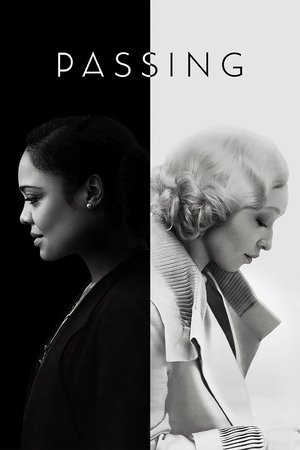
Passing
“Passing,” based on the 1929 novel by Nella Larsen, is and elegant and sophisticated film. It’s drop-dead gorgeous to look at, and the lead performances from Tessa Thompson and Ruth Negga are absolutely fabulous. Rebecca Hall‘s restrained direction adds to the beauty of the film, as does Eduard Grau‘s handsome black and white cinematography. There’s so much about this project to praise, but you may hear some refer to the movie as “nuanced” — which is nothing more than a polite way to say “boring.” Refined, upper-class black woman Irene (Thompson) enters a fancy tearoom in a swanky New York City hotel. Across the table, she spots a blonde woman (Negga) staring her down. It turns out the two knew each other when they were younger, but fate has brought them together. Both women are black but light skinned, and Clare has used her complexion to her advantage by passing as white. They each struggle to find a place they belong in a society that’s not too kind to those who are of a different color. It’s a story that’s filled with complex ideas, but the end result is mostly a snore. There isn’t much story to speak of, and the timely issues of gender, identity, and class, and the weighty topic of race as performance art, are squandered in a bland wrapper. The film is quite tame with its social commentary, which is so disappointing because this is the perfect vehicle in which to really make a bold statement. Hall’s direction is nicely done, and she draws excellent performances from Negga and Thompson. But this movie is stretched to two hours when the sparse story could have been told in half that time. There are multiple scenes of deep gazes and lengthy pauses that slow down the movie, including what feels like a nearly three minute scene where someone is removing her coat. I had high hopes for “Passing,” but I feel like this book-to-screen adaptation was a wasted opportunity to deliver a more important, profound message.
